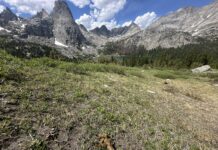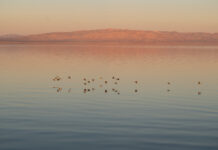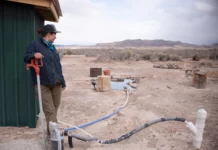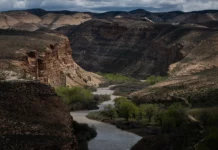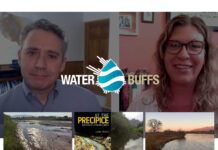Wyoming’s crowded Lonesome Lake tops EPA’s national survey for fecal contamination
LONESOME LAKE, WYOMING—Whit Coleman belly flopped with style into some of Wyoming’s most famous alpine waters on a summer day.
Out on a father-son backpacking trip with friends, the Salt...
As Colorado ramps up PFAS drinking water tests, small towns brace for costly fixes
Renee Hoffman was never thrilled about the water quality at her house in Sleepy Bear Mobile Home Park on the outskirts of Steamboat Springs.
“It just didn’t taste great,” she...
Denver Water is halfway through replacing lead pipes. Why didn’t this happen sooner?
On an early morning, a quiet Denver neighborhood was temporarily transformed into a construction zone. A boring machine on the road outside someone’s home pointed a long, thin drill...
Scientists Warned of a Salton Sea Disaster. No One Listened.
California’s Salton Sea offers a tableau of dead wildlife, toxic dust, and neglect. It was long in the making.
Once ‘paradise,’ parched Colorado valley grapples with arsenic in water
Decades of climate change-driven drought, combined with the overpumping of aquifers, is making the valley desperately dry — and appears to be intensifying the levels of heavy metals in drinking water.
Utah’s Suicide Pact With the Fossil Fuel Industry
The state’s fixation on oil and gas development threatens the Colorado River watershed.
State inspections lag for New Mexico’s primary drinking water source
New Mexico is behind in water inspections for the third year in a row, leaving water quality in question.
Some still don’t have a reliable water source near the headwaters of the Colorado...
Residents of a mobile home park near Gunnison are often left without water because of unreliable supplies.
Water and climate change in New Mexico – Water Buffs Podcast ep. 9 – Laura...
We talk to Laura Paskus, a journalist with New Mexico PBS, about her coverage of climate change and water issues in the state.
Unclear waters: How pollution, diversions and drought are squeezing the life out of the...
The Arkansas Valley Conduit promises to bring clean drinking water to more residents of southeast Colorado.



